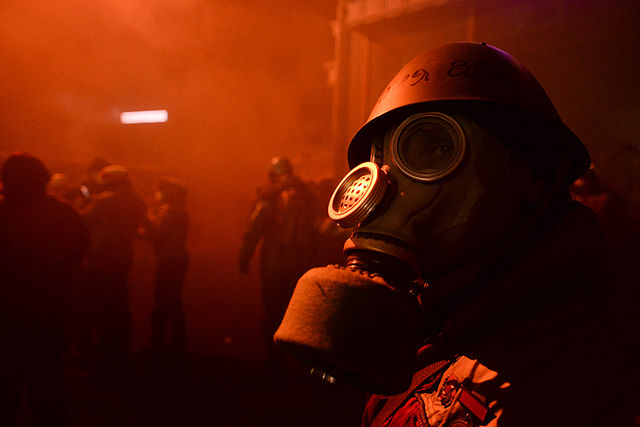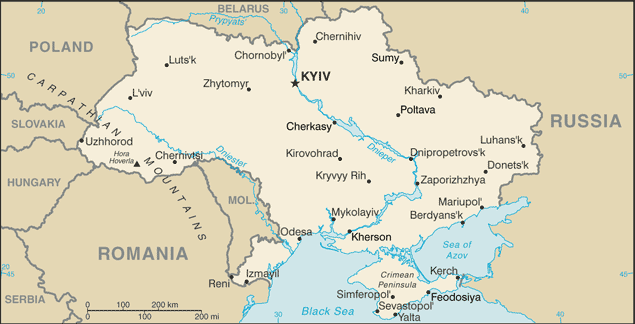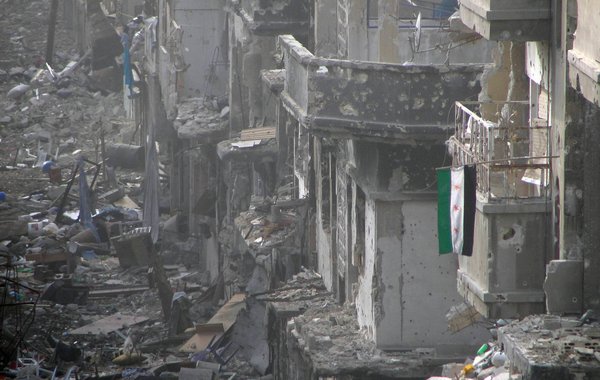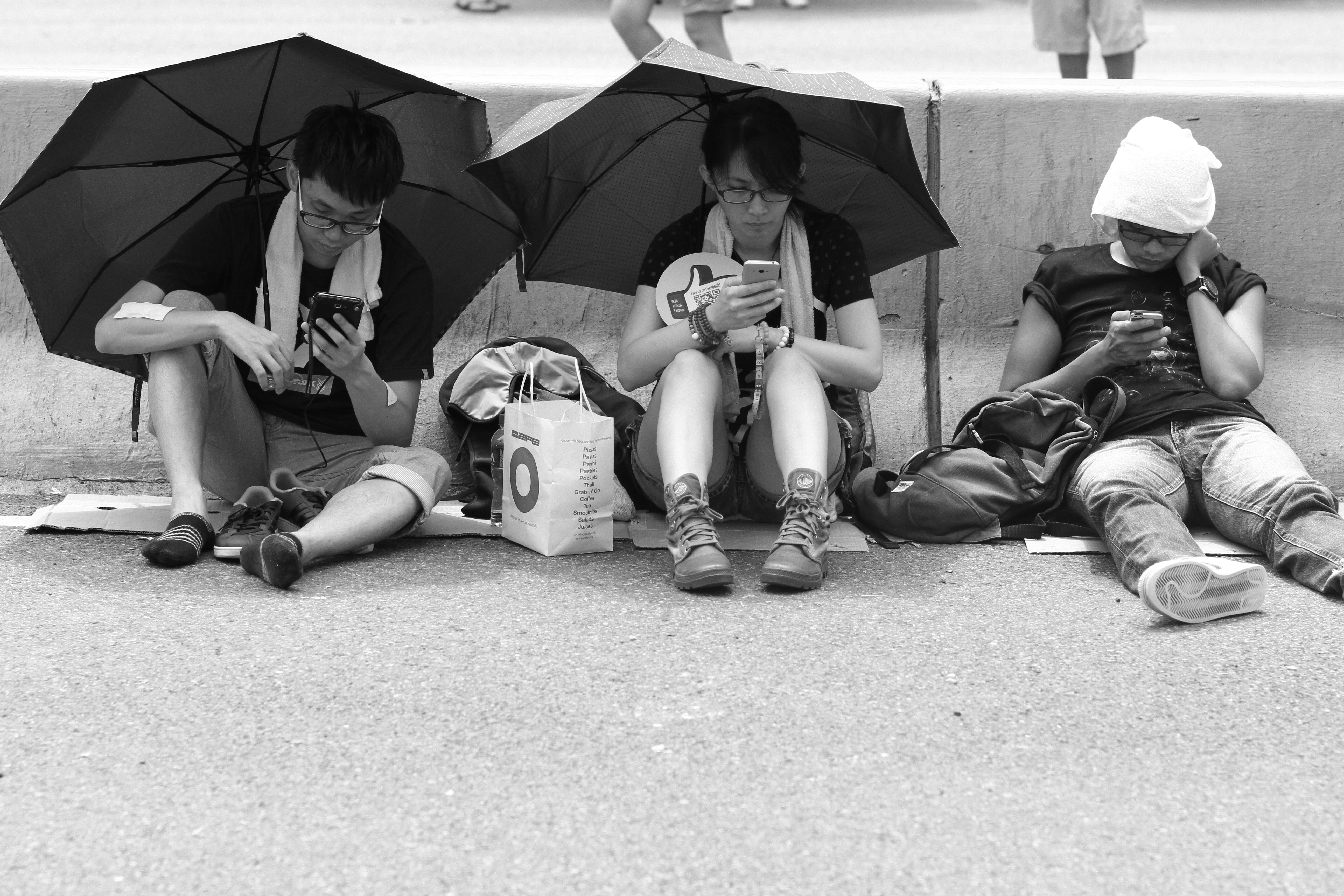
On Tuesday the Ukrainian government sent the following text message to thousands of protesters in the streets of Kiev: “Dear subscriber, you are registered as a participant in a mass disturbance.” This short text belied a far more radical message. For the first time, a government was able to identify individual protesters and privately communicate to them that it knew who they were and where they were located.
The implications of this are potentially huge. In theory, there are at least two possible effects such monitoring could have. The first is that it could convince individuals that it is too costly to continue to protest — if the government can monitor all movement, then capturing and convicting individual protesters becomes much easier. This information could also make it more difficult for citizens to initiate a protest if they must leave their cell phones at home to avoid detection. The result would be fewer protests and smaller, less dynamic movements.
But government tracking could also have the opposite effect. Think of it this way. If you are a protester in the streets of Kiev and you receive a text message from the Ukrainian government telling you that you have been identified as a protester, what benefit do you get from going home? None, since you have already been implicated in the movement. The best strategy at that point would be to continue to fight with the aim of emerging victorious.
This appears to be what’s happening in Ukraine. Clearly, the Ukrainian government sent the text message believing it would scare people back into their homes and deter others from joining. But this didn’t happen. Instead, protesters are digging in their heels and fighting harder. Their main demand: the resignation of the current government.
How can we expect this technology to affect protests more generally, especially protests that have not yet broken out? Here I think the implications are pretty straightforward. Potential protesters will likely leave their cell phones at home before they hit the streets. They will still be able to communicate with each other from their homes in order to coordinate activity. But the real-time tweets and photos and videos that protesters have been willing to send from the streets to the rest of the world will stop. GPS has made carrying a cell phone too risky … at least until protesters can figure out a way to guarantee that the government can no longer track them.







37 comments
The text message might have been a deliberate provocation. That is, the present government may want the protesters to dig in and fight harder, and especially to turn violent, so that it will have an excuse to kill them or lock them up for a long time. This would especially be the case if the government thinks it has the preponderance of public and institutional support, which, according to my reading, it does.
There are ways of turning off the GPS function in cell phones, so I don’t think that cell phones are going to be excluded from use by demonstrators. Of course, the authorities will still be able to collect and use the metadata to identify and possibly persecute the opposition by constructing social maps, which casts a certain light on certain practices in some other countries.
That seems like a strange tactic to me. If the Ukrainian government had the power to crack down on the protesters that harshly, they would have done it by now. They don’t gain anything by the protests continuing.
turning your gps off dsoesnt render it useless, in fact neither does removing the battery from your phone. there are applications out there that will locate a stolen phone even if it has been dismantled and the battery removed. short from absolutely destroying the phone there is noway you can stop someone with the power to do so from tracking it.
A Faraday bag should isolate it enough to prevent the GPS, or any other signal, from getting in or out. They can be found for under $10.
Why bother? The moment you remove it for use you are tagged.
Hahahahah No there is NOT.
” there are applications out there that will locate a stolen phone even if it has been dismantled and the battery removed. ” Really? Such as?
lol…it’s called imagination.
Someone is lying!
This is true, even if you turn off the gps, turn off the phone, remove the SIM card, drop the phone into water, smash it with a hammer, scatter the remains around the 4 corners of the earth. They can still track it.
They likely don’t even use the GPS. You know which phones connect to which cell towers… your in the area, you connect to the network…
Interesting. Literature is not clear on the implications here. If mobilization is likely when repression is unlikely, then the text sends a message that repression is more likely than had the protestors not received a message and one would expect that subsequent mobilization is not likely. At the same time, the text at the protest isn’t the same as having a letter delivered to one’s home (after they left the protest), seeing someone hit upside their head right in front of you or being hit oneself. E-repression might just be lame and if someone cannot make the connection between E-repression and physical repression then they will likely not be deterred. I wonder how many individuals received and open the text. I wonder how many texts did not go through because it was believed to be spam. I wonder if E-mobilization will respond to the E-repression leading to E-freedom.
the most obvious purpose is to deter people from bringing their cell phones and being able to capture and share video as it happens.
It’s not the cellphone’s GPS that allows people to be tracked. Cell phones can be located because they ping multiple cell phone towers at once, and from this their exact position can be triangulated. And anyway, I bet that the technology messages anyone within certain towers’ range. I would bet that many people who weren’t protesting also received the messages, simply because they worked or lived nearby. But even if those who run this technology were able to mark a square on a map and get the software to only message these people, it has nothing to do with GPS technology.
Exactly, and that sort of technology needs quite a few pretty specific perimeters to be effective. I doubt it would hold up in any reasonable court room.
But is it really certain that they did register the people? Governments lie all the time, it would be nothing new. There are many examples of cities with emergency plans prepared to send everyone in a certain area a certain text message. I’m not convinced that it’s more than a bluff.
If they can send the message, they can record who they sent it to. Do you actually expect a government trying to crack down to voluntarily not collect this information?
It is a bluff. In Ukraine cell numbers are not registered to names as they are in Russia. Making it mandatory to register is part of the new police-state “laws”.
Even if phones are not registered with a central authority, it would be fairly easy to figure where someone lives and works by doing subsequent follow-up with the cell phone providers as to where the users of these phones hang out. Unless people just get rid of their sim cards after the protest and get a new phone number. Unlikely… Authorities could also track the financial transactions that were used to buy the sim cards and recharge the cards.
Easy solution: Just put your phone into airplane mode, or remove the SIM card, and use it primarily as a video camera while the protest is going on. Head a few blocks away if you need to make a call or text.
Actually they sent it to anyone who’s phone was being pinged by a cell tower near the disturbances. They sent it to folks who were in their offices and private homes at the time of the riots. Not that the regime would care.
The easy way around the tracking via gps is to use a throwaway phone. Phones are so cheap nowdays anyone can buy one with unlimited access for a small fee. If I can get one that cost under $100 and $45 a month and give bogus info who is government really tracking then? All the government did here was give protestors one more reason to not give in or give up. To anyone in the Ukraine I say this'” Raise you Black flag for Freedom or die trying”. Better to die on your feet than to serve on your knees.
Exactly what I thought when I read the first line. Burner phones are cheap and virtually untraceable. Just smash it or shut it off. Even better, buy the fake Chinese-made iPhones. EZ swap out SIM.
I think USA can do the SAME THING – we call it “reverse 911”.
They probably can send to All phones working from a cell tower.
Fukk the evil guvs
They don’t have to know who they are texting. Mass messages can be sent to all phones served by a particular tower, regardless of carrier, etc. The US does it now to warn people of approaching tornados. Messages go to all phones within the range of a particular tower in the storm path, warning everyone to take cover. It works. The same system can be used to message those protesters, while the government has no clue as to who they are communicating with. I think it was a scare tactic.
Lets say the Ukrainian DID lock up and prosecute all the protestors, how much time, money and energy would that cost the government?
What about this, could these pouches help?
Go to minute 1:26 to see,
http://www.bbc.co.uk/news/technology-25914731
What you need, is to make a ‘Jaques Three’ (cf. Tale of Two Cities) that run hotspots and then use wireless devices that connect with a masked MAC and one of the various VoIP programs to communicate by voice or just tweet et.al directly. There are several options for video cameras that connect wirelessly to accounts.
There are plenty of ways to get around this, but they require more forethought than is typically part of a loosely starting protest. A rebellion would function in a way that would be able to get around this type of tracking, but again, it would need technical forethought.
Just for the records: The Ukrainians were by far the first to use mobile phones to detect protesters. Already in December of 2010 there are houndreds of reports of people being called on their mobile phones and questioned by the Belarusian secret police (KGB) why they took part at the opposition rally a few days earlier. http://charter97.org/en/news/2011/1/12/35161/
Also in Germany the numbers of 10.000 mobile phone users, who were taking part at an Antifascist demonstration in Dresden on 11. of February 2011 were gathered by the police. (in english: http://database.statewatch.org/article.asp?aid=31736 )
It may be pure coincidence, that the police in Saxony (Dresden) had been actively teaching their Belarusian colleagues how to handle big masses event (to prepare for the Icehockey worldchampionship in Belarus 2014. To prepare for the sport-event Belarusian policemen observed the work of their colleagues at a football match in 2009, as well as the Dresden Antifascist Demonstrations in February 2010, and during the blockades of the nuclear waste transport in October 2010.
In Germany it is known and in Belarus assumed that mobile data was obtained by the phone companies. As Lucas MIngst commented the same seems to be true in the Ukrainian case, therefore it is likely that police did not use GPS, but just normal telephone data.
Besides this Security forces all over the world have been mimicking cellular towers to listen directly into the talks (for the USA see: http://www.truthandaction.org/stingray-local-police-listen-cell-phone-calls/ for UK for example http://www.dailymail.co.uk/news/article-2055543/Whos-listening-Met-police-track-thousands-mobiles-using-covert-surveillance-system.html)